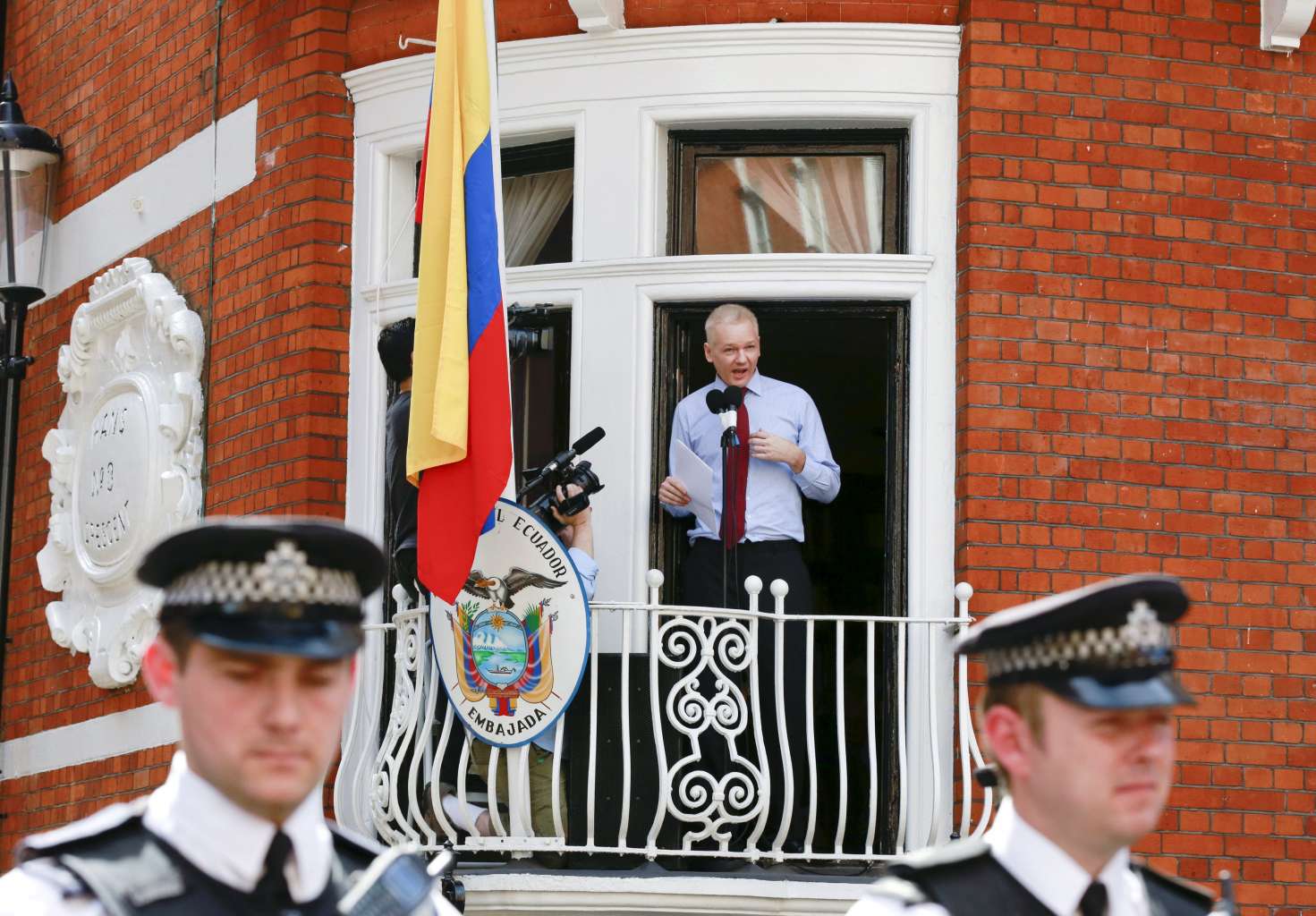WikiLeaks founder Julian Assange: The man and his mission
Sign up now: Get ST's newsletters delivered to your inbox

WikiLeaks founder Julian Assange is hoping to end his confinement on Friday after a UN panel decision.
PHOTO: REUTERS
Follow topic:
WikiLeaks founder Julian Assange, holed up at the Ecuador embassy in London for more than three years over a rape allegation in Sweden, called on Britain and Sweden on Friday (Feb 5) to let him freely leave the embassy after a United Nations panel ruled he had been arbitrarily detained and should be awarded compensation.
But both Britain and Sweden have denied that Assange was being deprived of freedom, noting he had entered the embassy voluntarily. Britain said it could contest the decision and that Assange would be arrested if he left the embassy. Swedish prosecutors have said the ruling will have no impact on its investigation into a 2010 rape allegation against Assange, which he denies.
Here's a quick recap of the case and what could happen next:
Who is Julian Assange and what is Wikileaks?
44-year-old Assange, a computer programmer and hacker, founded whistle-blowing website WikiLeaks in 2006. He infuriated the United States by releasing some 500,000 secret military files on the wars in Afghanistan and Iraq, and 250,000 sensitive diplomatic cables. The main source of the leaks, US Army soldier Chelsea Manning, was sentenced to 35 years in prison for breaches of the Espionage Act.
Assange was also alleged to have sexually assaulted two Swedish women in August 2010. In November that year, a Swedish prosecutor issued a European arrest warrant for Assange, who denied the charges, saying the women were willing parties.
How did he end up in the Ecuador embassy?
Assange sought refuge at the embassy in London in June 2012 after being granted political asylum. He has remained there since then to avoid arrest by British authorities who will hand him over to Swedish and US prosecutors.
Ecuador's Foreign Minster Ricardo Patino has said Assange's human rights would be at risk if he were extradited and that Ecuador is being loyal to its tradition of protecting those who were vulnerable.
Britain has spent millions of pounds maintaining a 24-hour guard outside the embassy until last October to immediately arrest Assange if he set foot on British soil. This was scrapped in favour of a "covert plan" of surveillance.
The British government has denied that Assange was ever arbitrarily detained, saying he was instead "voluntarily avoiding lawful arrest".
But WikiLeaks filed a complaint against Sweden and Britain to the UN group in September 2014, claiming his confinement in the embassy was unlawful.
Assange has also claimed that he was deprived of fundamental liberties including access to sunlight and fresh air, adequate medical facilities, as well as legal and procedural security.
How influential is the UN working group?
Rulings by the UN group are not legally binding, although the Justice for Assange support group claimed it has influenced the release of prominent figures, including Myanmar's Aung San Suu Kyi and former Maldives president Mohamed Nasheed. Still, the UN's findings would put pressure on Britain and Sweden over Assange's virtual imprisonment in the Ecuador diplomatic mission.
What happens now that the UN group has ruled in favour of Assange?
Assange has called on Britain and Sweden to implement the UN panel's decision. "We have today a really significant victory that has brought a smile to my face," Assange said. "It is now the task of the states of Sweden and the United Kingdom ... to implement the (UN) verdict."
However, both countries have dismissed the non-binding legal opinion. Britain said it could contest the decision and that Assange would be arrested if he left the embassy. Britain's Foreign Secretary Philip Hammond also called Assange "a fugitive from justice." "This is frankly a ridiculous finding by the working group and we reject it," the foreign secretary added.
Sweden's foreign ministry said that the panel had no right to "interfere in an ongoing case handled by a Swedish public authority." "The government does not agree with the assessment made by the majority of the Working Group," the foreign ministry said in a letter to the panel. Swedish prosecutors also said the panel's ruling "has no formal significance for the ongoing investigation under Swedish law."
Meanwhile, the Ecuador embassy could also try to claim compensation from the British government for the costs of harbouring Assange over the years, including the provision of security at its premises. "Who is going to compensate the harm that has been done to Julian Assange and to Ecuador?" said President Rafael Correa at a news conference in Quito on Thursday (Feb 4). "Do you know how much it costs to maintain security at the embassy?" he asked.
SOURCE: AGENCE FRANCE-PRESSE, REUTERS

